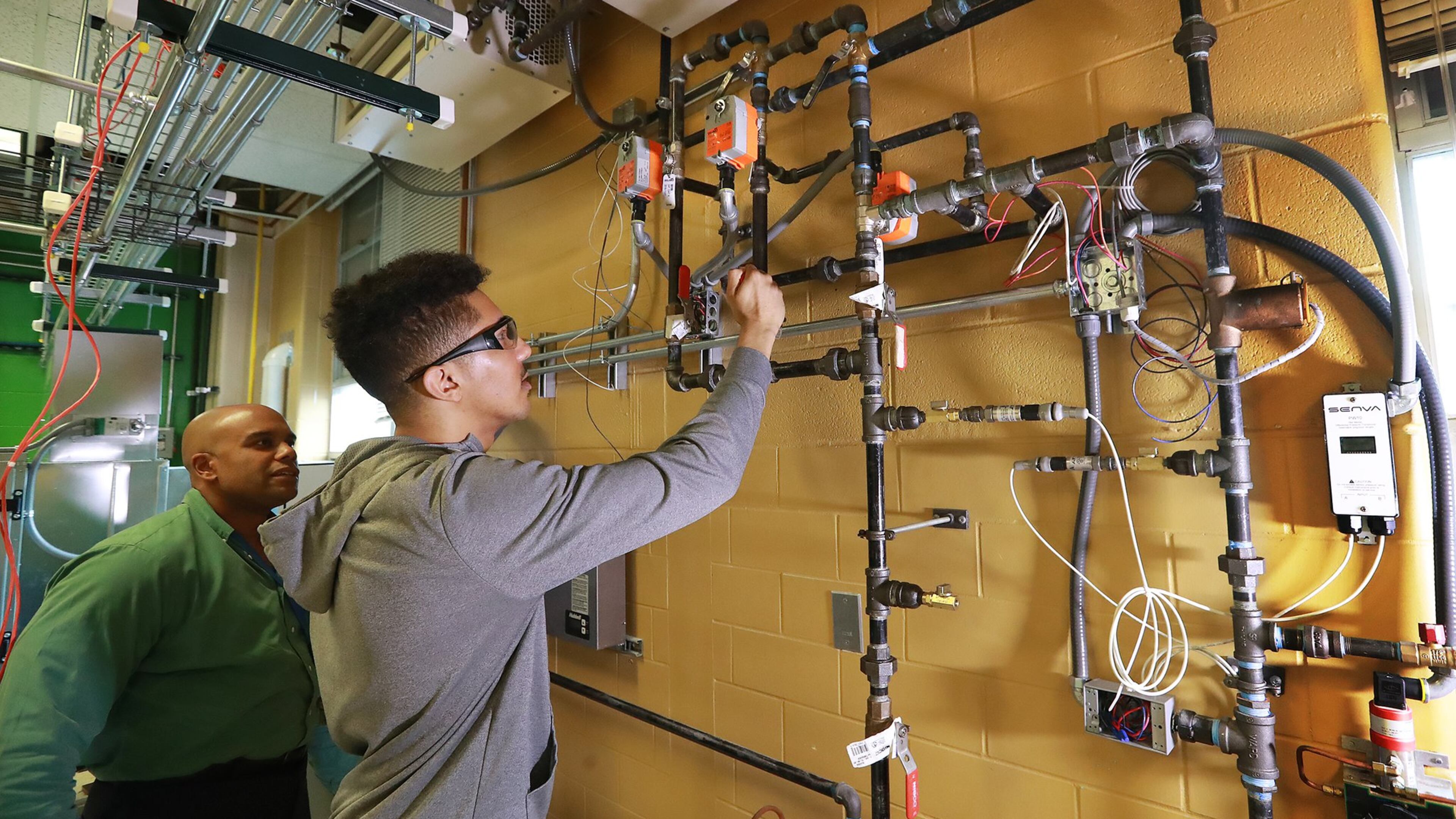OPINION: Two-year technical colleges ready to train post-pandemic workforce

In a guest column, Tavarez Holston offers his view on how the country can move the economy forward through the pandemic and beyond. The president of the Clarkston-based Georgia Piedmont Technical College, Holston highlights what he considers a key component in the recovery efforts -- the low cost, short-term training opportunities provided by the state’s technical colleges.
A U.S. Army veteran, Holston holds a doctorate in education from Valdosta State University and a master of science in management with a focus in leadership and organizational effectiveness from Troy University. He earned his undergraduate degree at the University of North Georgia. He became the fourth president of Georgia Piedmont Tech in 2018.
By Tavarez Holston
The road to economic recovery can be traveled in two years or less. I stand firmly on this proclamation. Why? I believe two-year, technical and community colleges are poised and ready to train the nation’s post-pandemic workforce. Georgia’s technical colleges exist to connect students to work as evidenced by an overall 99% job placement rate. Essentially, every completer finds employment after training stints that range from six weeks to two years.
It is no secret the pandemic has forced companies to leverage technology and automation in their business models. My local discount retailer has recently replaced cashiers with self-checkout stations. This type of accelerated change is a threat to the livelihood of the student who is a cashier. I will call her Hope. Yes. Hope will soon receive a $1,400 check that will provide much needed support for her family, but what she really needs is the generational stimulus that education provides.
The programs offered by the schools in the Technical College System of Georgia are reflective of the specific needs of the communities served; therefore, I am not surprised that calls from business leaders and hiring managers have not waned, even amid a global pandemic. Their collective, consistent plea remains, “We need more skilled workers.”

The skills gap continues to widen in fields from health care to advanced manufacturing as technology strengthens its hold on the world of work and thousands of Georgia’s skilled jobs go unclaimed. Headlines focus on rising unemployment rates while I sit in board rooms with hospital executives exclaiming, “Please send us all of the trained nurses that you’ve got!” We must direct people, and by the masses, to the two-year path that will get our economy moving again.
Hope is perceptive and resourceful. She knows she needs a marketable skill to remain competitive in an evolving job market. Hope’s employer has several openings in other lucrative fields like commercial truck driving, which requires her to complete an eight-week, tuition-free training program at her local technical college. However, staying on the road away from her school-aged kids is not an option, though $45,000 per year would be a substantial pay increase.
An independent vision center is housed in the same building as her employer. From her register, she watched and was inspired by the increased confidence that people had as they exited wearing their new glasses. She was amazed to discover the pay for making glasses was $26 per hour. Hope enrolled in her local technical college’s opticianry degree program.
Our current economic times are an anomaly. Historically, technical and community colleges experience an enrollment boom when the economy tanks. Nationwide, enrollments at two-year colleges have decreased by 10% over the last year. It has been well publicized that the pandemic has impacted low-income populations and people of color disproportionately. This population most frequently looks to two-year colleges for educational advancement. They have also been the most likely to opt out of classes during the pandemic.
Many students—like Hope—enter uncharted territory the moment they cross our thresholds, if they cross them at all. Technical college students face obstacles that many of their peers attending four-year institutions do not. Learners like Hope have told us they have forgone classes to work extra hours to make ends meet, care for loved ones and help their school-aged children learn from home. Consequently, this enables the pandemic to further exacerbate wealth and equity gaps in our communities.
The way to quick economic recovery is to train Hope today for the jobs of tomorrow. This will provide her with access to a livable, sustainable wage to support her family. There are countless numbers of Georgians who need to obtain marketable skills. Employers have a desperate need for Hope’s talents. We need Hope.
Spring commencement approaches, and Hope will be among those receiving her degree. Her dream of becoming a college graduate is now within reach. The large majority of her tuition and fees were covered by grants and scholarships. Therefore, she will leave college with little to no debt upon graduation and unlimited confidence to be successful as an opticianry technician. Her journey continues.
We keep moving forward because there is Hope.

